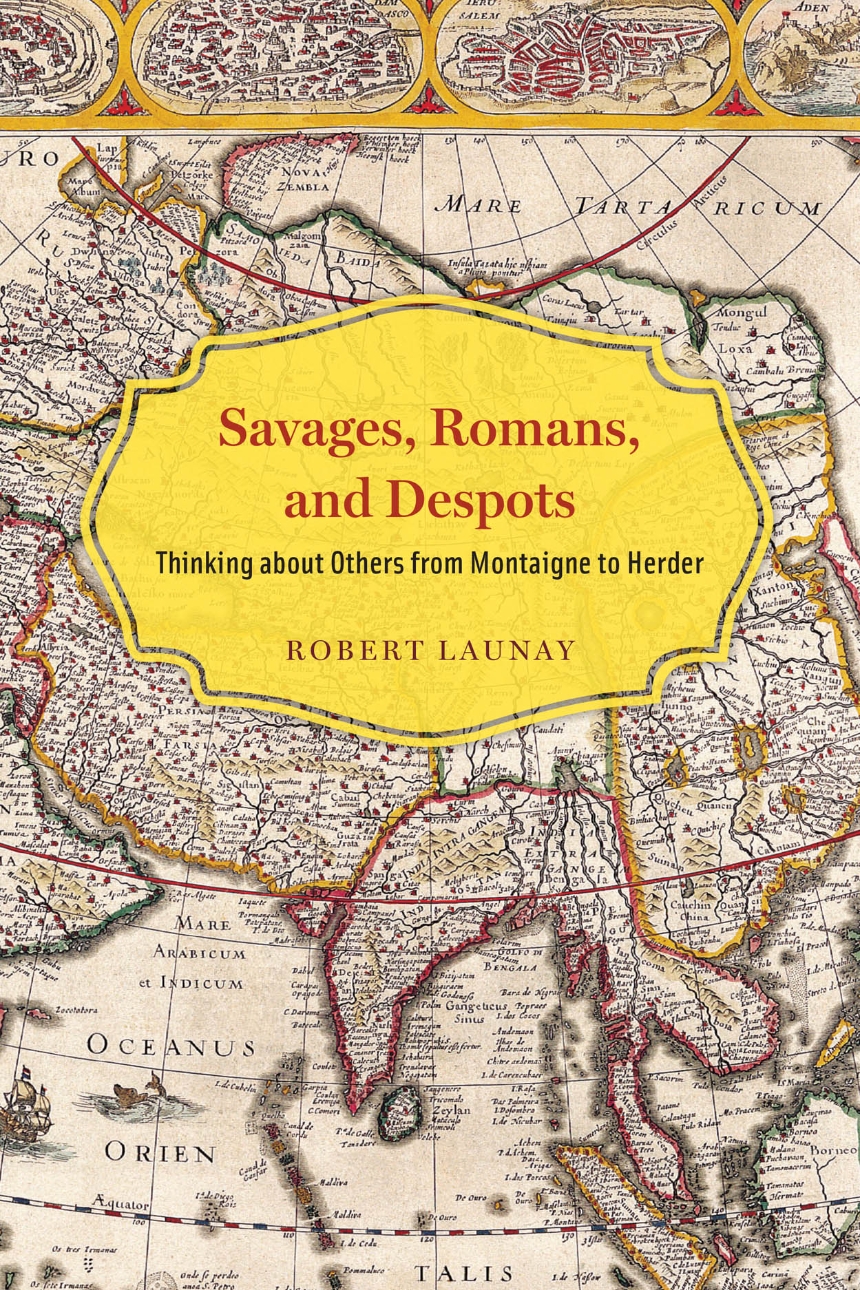Savages, Romans, and Despots
Thinking about Others from Montaigne to Herder
9780226575391
9780226575254
9780226575421
Savages, Romans, and Despots
Thinking about Others from Montaigne to Herder
From the sixteenth to the eighteenth centuries, Europeans struggled to understand their identity in the same way we do as individuals: by comparing themselves to others. In Savages, Romans, and Despots, Robert Launay takes us on a fascinating tour of early modern and modern history in an attempt to untangle how various depictions of “foreign” cultures and civilizations saturated debates about religion, morality, politics, and art.
Beginning with Mandeville and Montaigne, and working through Montesquieu, Diderot, Gibbon, Herder, and others, Launay traces how Europeans both admired and disdained unfamiliar societies in their attempts to work through the inner conflicts of their own social worlds. Some of these writers drew caricatures of “savages,” “Oriental despots,” and “ancient” Greeks and Romans. Others earnestly attempted to understand them. But, throughout this history, comparative thinking opened a space for critical reflection. At its worst, such space could give rise to a sense of European superiority. At its best, however, it could prompt awareness of the value of other ways of being in the world. Launay’s masterful survey of some of the Western tradition’s finest minds offers a keen exploration of the genesis of the notion of “civilization,” as well as an engaging portrait of the promises and perils of cross-cultural comparison.
Beginning with Mandeville and Montaigne, and working through Montesquieu, Diderot, Gibbon, Herder, and others, Launay traces how Europeans both admired and disdained unfamiliar societies in their attempts to work through the inner conflicts of their own social worlds. Some of these writers drew caricatures of “savages,” “Oriental despots,” and “ancient” Greeks and Romans. Others earnestly attempted to understand them. But, throughout this history, comparative thinking opened a space for critical reflection. At its worst, such space could give rise to a sense of European superiority. At its best, however, it could prompt awareness of the value of other ways of being in the world. Launay’s masterful survey of some of the Western tradition’s finest minds offers a keen exploration of the genesis of the notion of “civilization,” as well as an engaging portrait of the promises and perils of cross-cultural comparison.
272 pages | 6 x 9 | © 2018
Anthropology: Cultural and Social Anthropology
History: European History, History of Ideas
Reviews
Table of Contents
ONE / Maps of Mankind
TWO / The World Turned Upside Down: Mandeville
THREE / Between Two Saddles: Montaigne
FOUR / Climactic Harmonies: Bodin
FIVE / St. Confucius: The Jesuits in China
SIX / Distant Relations: The Jesuits in New France
SEVEN / Ancients, Moderns, and Others: Fontenelle and Temple
EIGHT / The Specter of Despotism: Montesquieu and Voltaire
NINE / Savage Critics: Lahontan, Rousseau, and Diderot
TEN / From Savagery to Decadence: Ferguson, Millar, and Gibbon
ELEVEN / Cultural Critique: Herder
TWELVE / “Others” Are Good to Think
Acknowledgments
Notes
Bibliography
Index
TWO / The World Turned Upside Down: Mandeville
THREE / Between Two Saddles: Montaigne
FOUR / Climactic Harmonies: Bodin
FIVE / St. Confucius: The Jesuits in China
SIX / Distant Relations: The Jesuits in New France
SEVEN / Ancients, Moderns, and Others: Fontenelle and Temple
EIGHT / The Specter of Despotism: Montesquieu and Voltaire
NINE / Savage Critics: Lahontan, Rousseau, and Diderot
TEN / From Savagery to Decadence: Ferguson, Millar, and Gibbon
ELEVEN / Cultural Critique: Herder
TWELVE / “Others” Are Good to Think
Acknowledgments
Notes
Bibliography
Index
